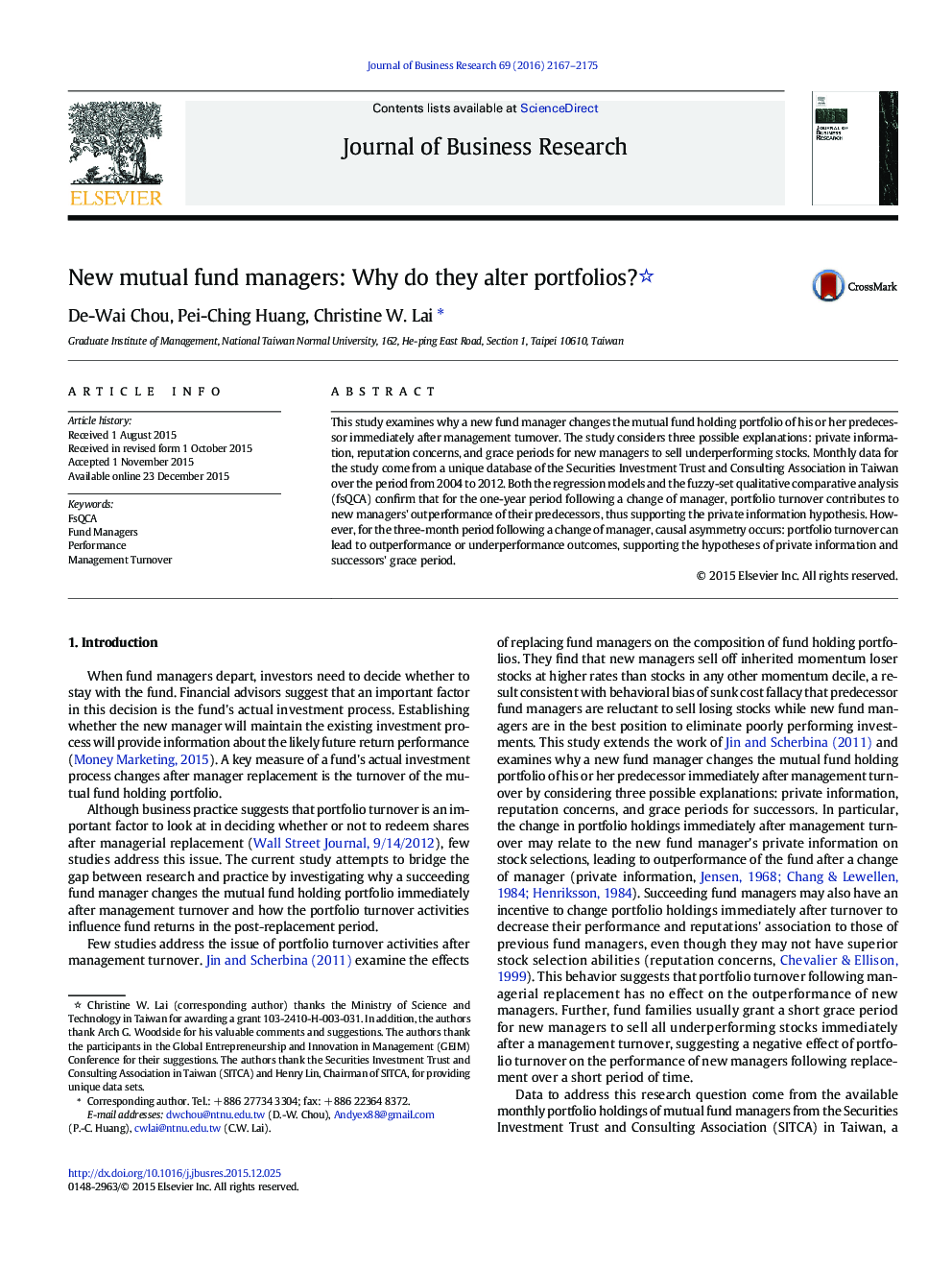| Article ID | Journal | Published Year | Pages | File Type |
|---|---|---|---|---|
| 1016947 | Journal of Business Research | 2016 | 9 Pages |
This study examines why a new fund manager changes the mutual fund holding portfolio of his or her predecessor immediately after management turnover. The study considers three possible explanations: private information, reputation concerns, and grace periods for new managers to sell underperforming stocks. Monthly data for the study come from a unique database of the Securities Investment Trust and Consulting Association in Taiwan over the period from 2004 to 2012. Both the regression models and the fuzzy-set qualitative comparative analysis (fsQCA) confirm that for the one-year period following a change of manager, portfolio turnover contributes to new managers' outperformance of their predecessors, thus supporting the private information hypothesis. However, for the three-month period following a change of manager, causal asymmetry occurs: portfolio turnover can lead to outperformance or underperformance outcomes, supporting the hypotheses of private information and successors' grace period.
